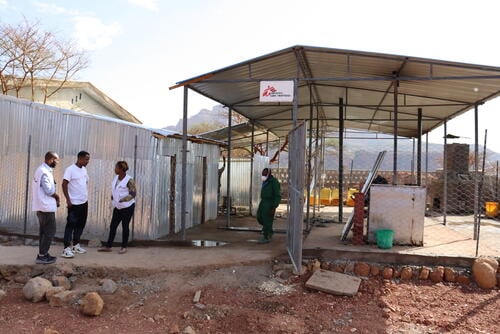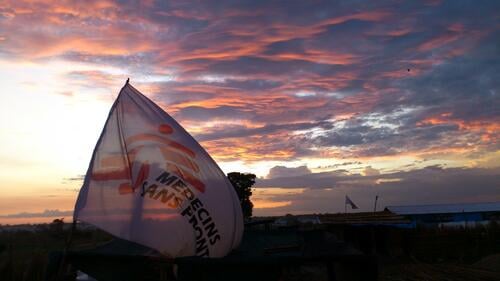Médecins Sans Frontières (MSF) began working in Abiy Adi, located in the Tigray region of Ethiopia, at the start of the region’s conflict in November 2020. We had to stop activities after the tragic incident of 24 June 2021, in which our colleagues Tedros Gebremariam Gebremichael, María Hernández Matas, and Yohannes Halefom Reda were brutally murdered.
We returned to Abiy Adi in March 2023 to support the rehabilitation of Tigray’s healthcare system, which was deeply disrupted by the conflict.
“We started by supporting the emergency department, then paediatrics, then neonatal intensive care and maternity,” says Mulgeta Abreha, nursing team supervisor for MSF in Abiy Adi. “This was at a time when the hospital didn't even have gloves, and many people were dying due to lack of medical equipment.”
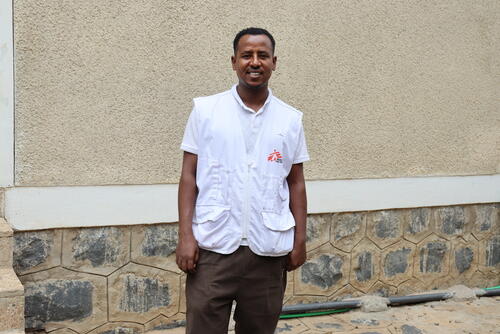
After more than a year, we ended our activities on 15 August 2024, as the hospital's capacity has increased, and the healthcare provided has reached appropriate standards. We will turn our focus to assessing and supporting health facilities in other areas where needs may be greater.
The war's impact on healthcare access
The town of Abiy Adi is a large population centre in the central region of Tigray. The two-year conflict – characterised by extreme violence, widespread looting and massive displacement of people – resulted in the near-total collapse of its healthcare system. Health facilities lacked medical supplies, biomedical equipment and health workers. The Abiy Adi General hospital was left barely functional.
“We started providing health services in Abiy Adi district through mobile outreach clinics for the first time in March 2023,” says Abreha. “In April, we began supporting the hospital, which at the time was experiencing a high number of mass casualties that the hospital's capacity could not handle. The hospital had only one doctor, and other staff were working without pay.”
MSF’s support to the Abiy Adi hospital and district
From March 2023 until July 2024, MSF rehabilitated several key departments in Abiy Adi General hospital: the emergency room, which received 15,424 patients by the end of June 2024; the neonatal intensive care unit, which treated 896 newborns in that time; the paediatrics department and inpatient therapeutic feeding centre with 1,280 children treated; and the maternity department, with 4,864 consultations done between March 2023 and July 2024. In 2024, the laundry, waste zone and surgical and medical wards were also rehabilitated, and biomedical equipment donated.
Between April and August 2023, we rehabilitated two maternity wards in Gororo and Arena health centres and provided basic healthcare services in six health centres in rural areas around Abiy Adi, resulting in more than 32,000 outpatient consultations. We also carried out nutritional outreach activities during three months in 2023, providing basic medical care for children under five years old with malnutrition.
Between October and December 2023, MSF supported four overcrowded camps where displaced people were living in poor conditions. Our teams provided mental health and psychosocial support sessions and health promotion activities, focusing on malaria prevention, breastfeeding, and personal hygiene.
Meeting the community's significant mental health needs
“This is a post-war society,” says Berehane Seyoum, mental health supervisor in Abiy Adi. “We can’t start working deeply on mental health if we don’t have the basics to survive like water and food. We did some advocacy work to get access to water in Lisanu camp. When we finally achieved it, people started talking to me during my sessions.”
“There are about three attempted suicide cases in the emergency room per week now,” says Seyoum. “They suffer because they had to flee their homes, because of lack of food, because many family members are missing.”
Seyoum also gives sessions on mental health for staff from the Ministry of Health and his own MSF colleagues who all work at the hospital. His goal is to increase motivation among the hospital’s staff, to remind them about the importance of including mental health in everyday healthcare and ensuring continuity after MSF leaves the hospital.
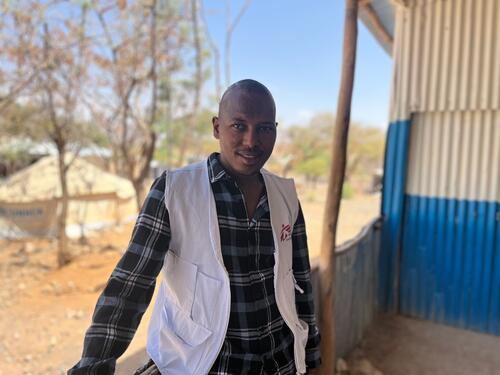
“We use the term ‘positive infection’ in the mental health department,” he says. “In our sessions in the hospital, we discuss how to make positive ideas viral with doctors, nurses, paramedics, but also with housekeepers, watchmen, and logistics staff. Because a doctor alone can’t do what we all together can achieve.”
Blood donations saving lives
Another impactful and life-saving activity that was running once a month in Abiy Adi town was a series of blood donation campaigns done in collaboration with Axum Blood Bank.
Tigray, like most of Ethiopia, is experiencing a shortage in blood reserves caused by diverse interlinked factors. Up to 50 per cent of blood is collected in schools and colleges. In conflict-affected areas, schools are closed, reducing the main source of blood collection. The conflict also left healthcare facilities barely functional, making the collection, processing, and distribution of blood more difficult.
At the same time, due to the destruction of health facilities, women who are about to deliver often arrive at hospitals quite late, increasing the possibility of complications that require blood transfusions.
Another factor contributing to the exhaustion of reserves and to the high demands of blood is the unprecedented rate of malaria. Between January and June 2024, over three million people contracted malaria throughout the country, which is almost the total of all cases for 2023, according to the Ethiopian Health Cluster.
To raise awareness and increase participation in blood donation, MSF set up a storytelling school club with the youth and community leaders of Abiy Adi. The narrations of the community’s positive experiences helped to break stigma and taboos about blood donation and encouraged people to participate in the campaigns. Their joint efforts mobilised people to donate 517 units of blood, which saved around 525 lives.
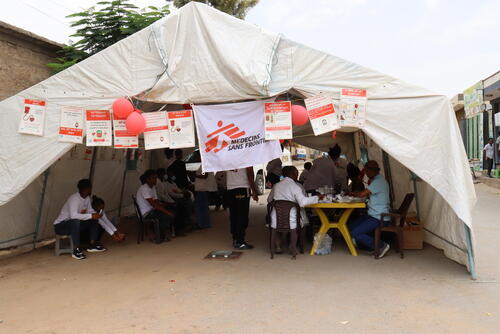
Healthcare in Abiy Adi continuing to recover
“We're very happy to see the Abiy Adi General hospital recover over the past seventeen months to the point where patients are able to access most services here again,” says Prue Coakley, MSF’s deputy head of mission for Ethiopia. “During the time we’ve been working alongside the Ministry of Health in the hospital, we’ve also been able to implement activities specifically designed for this context within the community – such as mental health sessions in camps for internally displaced persons and blood donation campaigns, in addition to capacity building for Ministry of Health staff.”
“We hope to see all the activities we’ve been supporting able to continue and further evolve to meet the needs of people in Abiy Adi and Tigray more generally,” they say.
MSF continues to work in many parts of Ethiopia, including Tigray, Afar, Oromia, Amhara, Gambella, South Ethiopia and Somali region. We continue to adapt our activities to changing needs in different parts of the country and respond to emergencies.



